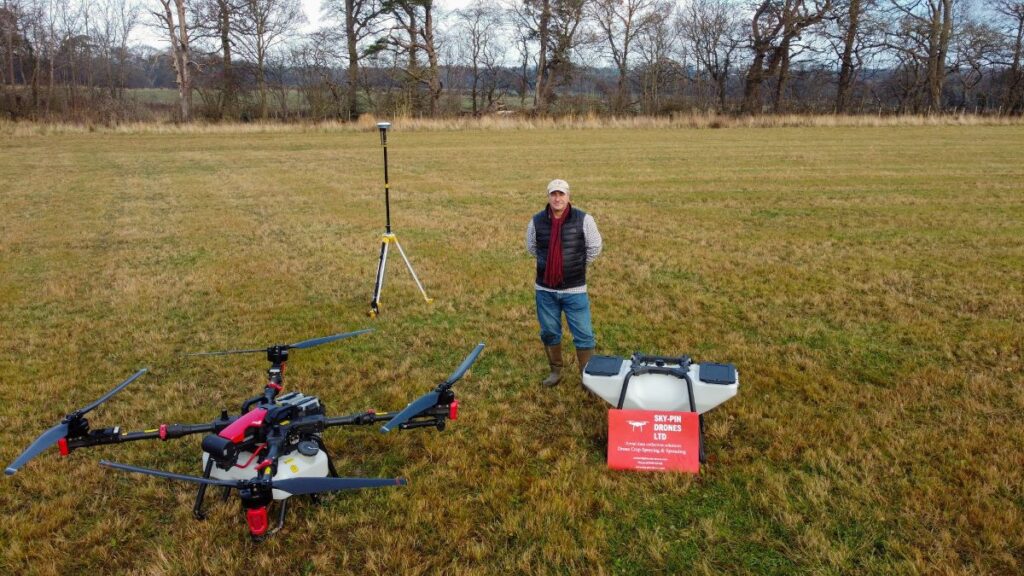The future of modern farming could be changing with the help of a supersized drone.
Drone technology has been supporting sustainable agriculture by helping farmers reduce their environmental impact, using fewer chemicals and conserving resources.
But a spike in demand for precision agriculture has led one Melrose man to become the first in Scotland to offer advanced crop spraying services using a state-of-the-art drone.
James Braid first learned to fly a drone in 2017. Two years later he established Sky-Pin Drones Ltd and began offering commercial aerial drone services.
His focus was on multispectral plant health mapping, photogrammetry, and aerial mapping surveys to assist landowners and farmers across Scotland.
The technology has already had a positive impact on land restoration in sensitive areas such as peatlands and woodlands, but James is now hoping a new supersized drone can help farmers.
With a growing demand for precision agriculture James is expanding his service to include crop spraying and spreading and seeding for conservation projects.
The drone, weighing 110kg, boasts a wingspan of over two metres and can spread up to 150kg of material per minute.
In addition to its crop-spraying capabilities, the drone’s multispectral plant health mapping technology – sensors that capture light in specific bands beyond the visible spectrum – provides valuable data on crop health.
The insights allow farmers to identify areas of poor crop performance within larger fields, minimise chemical use, and optimise fertiliser application.
‘Sustainability is playing an increasingly vital role in modern farming, and I’ve noticed a growing shift among my clients toward adopting more biodiverse products and practices,’ James said.
‘The drone technology I use is specifically designed to enhance sustainability by reducing chemical usage and promoting environmentally friendly approaches.
‘It has already made a positive impact on ecological projects such as peatland restoration and habitat management.’
The drone will also be able to offer horticulture greenhouse shading and cleaning, and solar panel inspection and cleaning.
‘Currently, I’m managing the business independently, but I’m excited about the prospect of expanding the team as more people discover the advantages of drones in agriculture and land management,’ James said.
‘I’m looking forward to this next chapter and showcasing how this innovative technology can unlock new opportunities and drive progress in these sectors.’
James purchased the new drone with a £48,000 loan through the British Business Bank’s Investment Fund for Scotland, managed by DSL Business Finance.
Sky-Pin Drones’ new services will be available to clients by summer 2025.
Read more News stories here.
Subscribe to read the latest issue of Scottish Field.
TAGS


